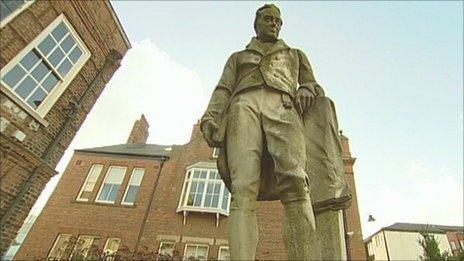William Wilberforce brought back to life in virtual reality
- Published
A 3D figure of the Hull-born abolitionist will appear in four films.
William Wilberforce, the politician who helped abolish slavery, has been brought back to life in a series of virtual reality films.
Wilberforce's campaigning led to the passing of the Slave Trade Act of 1807, which ended Britain's involvement in the transatlantic slave trade.
To mark the 210th anniversary of the law, a 3D figure of the Hull-born abolitionist will appear in four films.
The videos will be shown around Hull as part of the city's year of culture.
Read more about this and other stories from across Hull and East Yorkshire
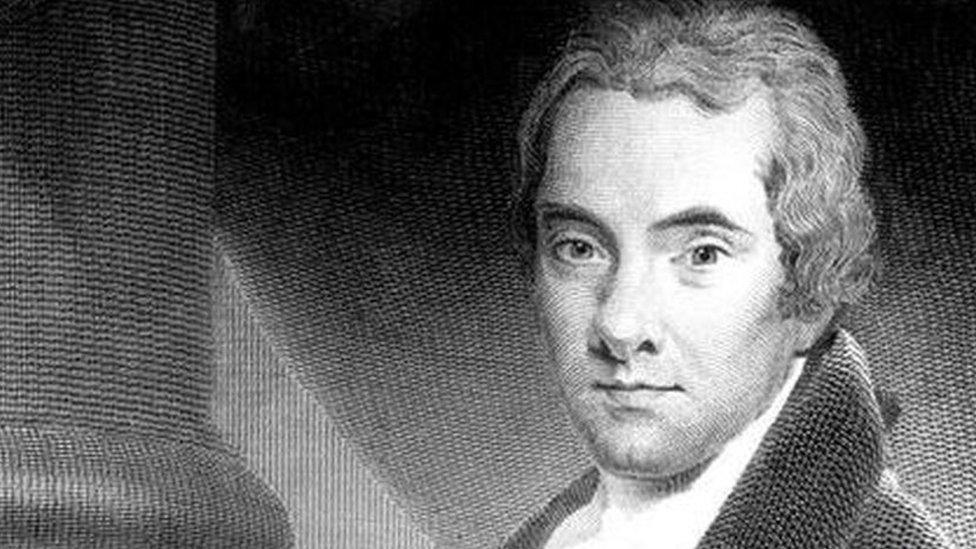
Described as Hull’s most famous son, William Wilberforce is best known as a pioneering anti-slavery campaigner
They are to be projected onto the side of the Wilberforce Institute, opposite Wilberforce House where he was born, from 18:00 GMT.
The films will then to be shown at Paragon Station and the Wilberforce House Museum.
John Oldfield, of the University of Hull's Wilberforce Institute, said: "We are telling his story again for a new audience.
"There is a lot of interest around the issue of slavery, both historical and contemporary.
"His success was hard-fought. It is a fight that still goes on."
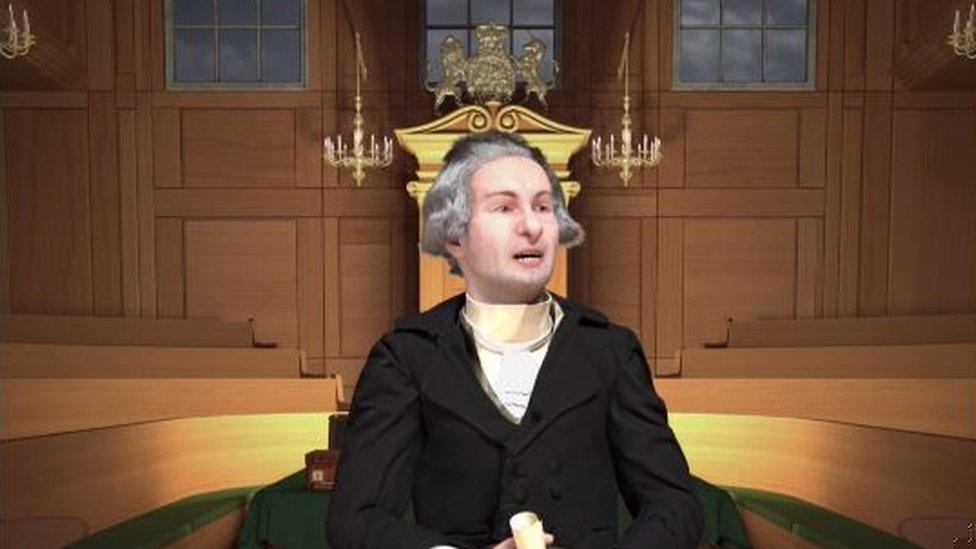
The videos include a recreation of his speech against the African slave trade in 1789
The University of Hull and the Glasgow School of Art have created a digital 3D version of Wilberforce showing him at different stages of his life.
The Wilberforce figure is voiced by a drama student with his movements captured for the new video.
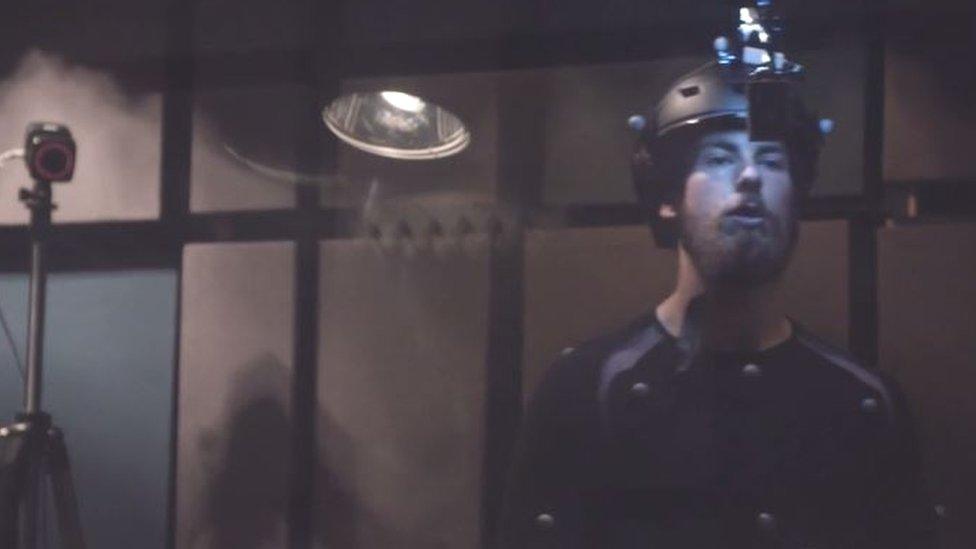
The Wilberforce figure is voiced by drama student Adan Osborne with his movements captured for the new video
The Home Office estimated in 2014 there are up to 13,000 people in the UK still working in slavery,
"Enslaved persons are hidden in plain sight and it's about poverty and deprivation," said Mr Oldfield.

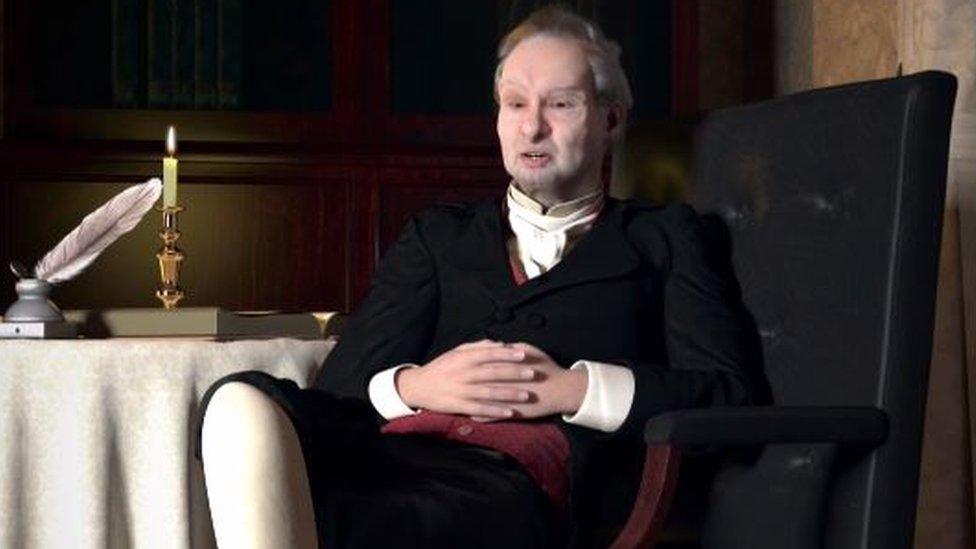
A virtual William Wilberforce in old age
William Wilberforce: 1759-1833
Born on 24 August 1759 in Hull, he was the son of a wealthy merchant
He studied at Cambridge University becoming friends with William Pitt the Younger, the future prime minister
He became member of parliament for Hull in 1780 and later represented Yorkshire
Shortly after taking his seat he converted to evangelical Christianity
During an 18-year period, he regularly introduced anti-slavery motions in Parliament
The Slave Trade Act was passed in 1807 but it was not until 1833 that an act was passed giving freedom to all slaves in the British empire
He retired from politics in 1825 and died on 29 July 1833 and is buried in Westminster Abbey

- Published25 August 2016
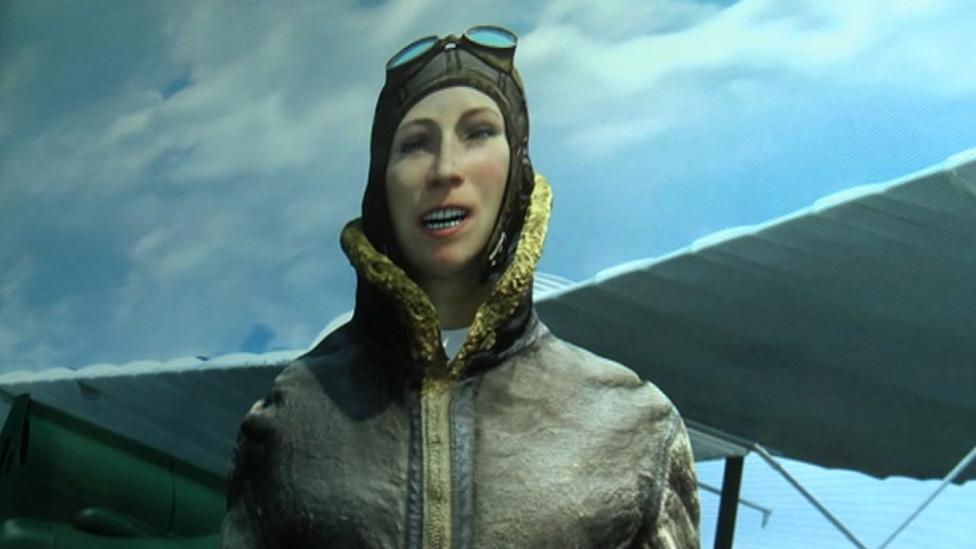
- Published12 June 2011
